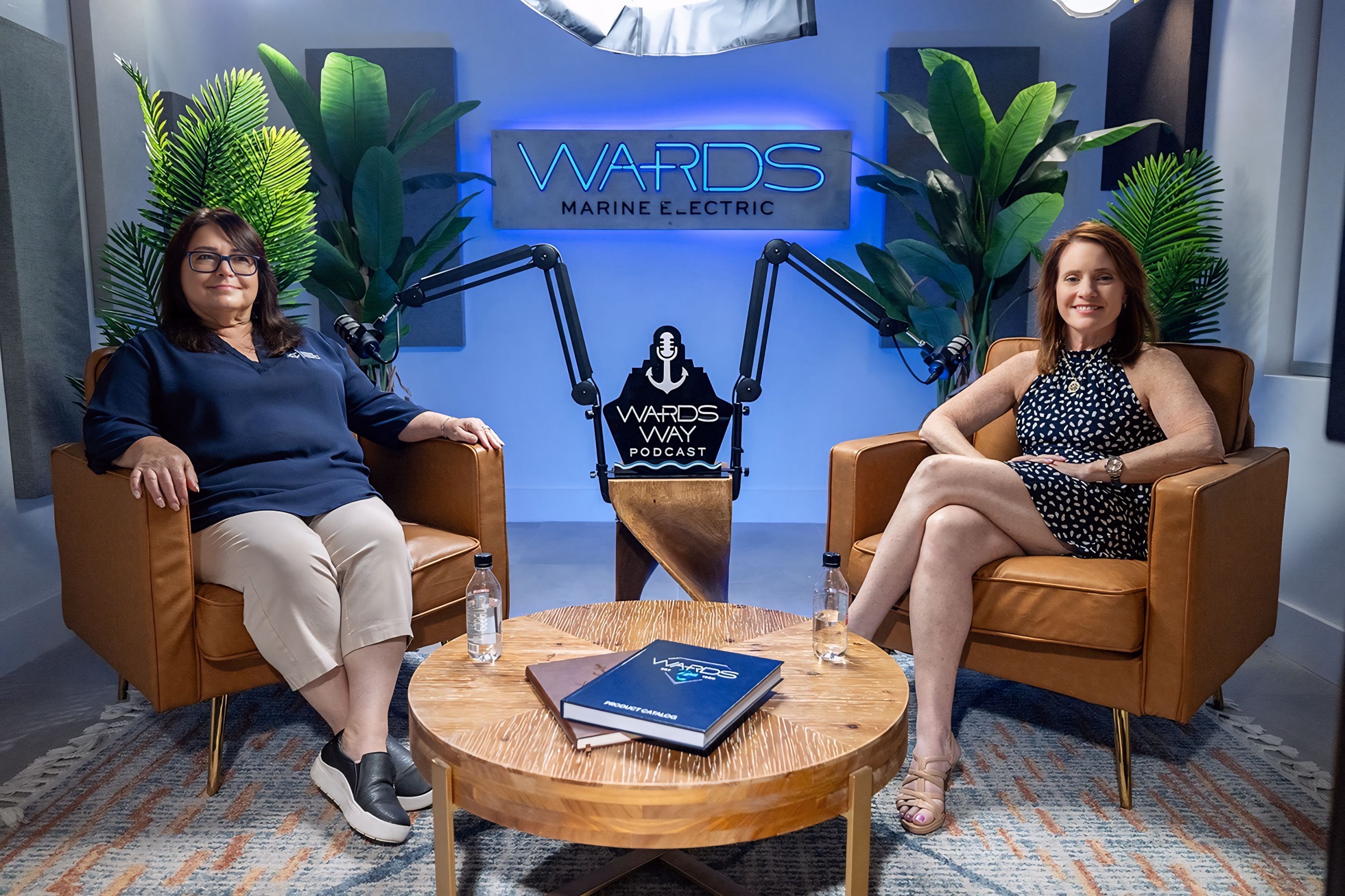
From Marinas to Millions: The FTZ Revolution with Michelle Terorotua
In the Wards Way podcast Season 3, Episode 8, host Kristina Hebert engages in a discussion with Michelle Terorotura, the Director of Marine and Aviation at Compass Logistics and Marine. The focus of their conversation centers on Foreign Trade Zones, which serve as a pivotal component of South Florida's marine economy.
South Florida's marine industry represents a powerful economic force, generating $24.6 billion in output across the region, with Broward County alone contributing an impressive $9.7 billion. What many don't realize is that innovative regulatory solutions like Foreign Trade Zones (FTZs) play a critical role in maintaining this economic powerhouse.
Foreign Trade Zone marinas represent a revolutionary concept that originated in South Florida approximately seven to eight years ago. These specialized zones allow foreign-flagged vessels to enter U.S. waters without immediately paying import duties, which can be prohibitively expensive for luxury yachts. Consider that an 11.5% duty on a $20 million yacht amounts to $2.3 million – a financial burden that could potentially derail sales and harm the broader marine services ecosystem.
The FTZ marina program has expanded significantly since its inception. Fort Lauderdale now boasts seven FTZ marinas, with additional locations in Miami, Palm Beach, Fort Pierce, and along Florida's west coast. The program's success has been so pronounced that it's currently being replicated in other states including Georgia and Rhode Island, demonstrating South Florida's leadership in marine industry innovation.
For yacht owners, the benefits are substantial. Vessels can be offered for sale to both U.S. residents and foreign entities without paying immediate duty. Importantly, these yachts can temporarily leave the FTZ to participate in boat shows, conduct sea trials, undergo yard work, or attend broker open houses – all while maintaining their duty-free status. This flexibility makes South Florida an attractive destination for yacht sellers worldwide.
The economic ripple effect extends far beyond the marina slips. When these vessels come to South Florida, they require services – maintenance, refitting, catering, crew accommodations, and more. With the marine industry supporting approximately 149,000 jobs in the tri-county area (with 121,000 in Broward alone), these FTZ arrangements help ensure that skilled workers from shipwrights to mechanics remain employed year-round.
Becoming an FTZ operator involves a thorough application process. Customs conducts site visits to evaluate security measures, inventory systems, and staffing capabilities. Once approved, an FTZ designation typically lasts for three years, with extensions granted as long as the business remains compliant and continues conducting FTZ-related activities. While there's an investment required – including annual fees, bonds, and potential infrastructure improvements – the long-term benefits can substantially outweigh these costs for businesses serving the high-value yacht market.
One common misconception about FTZs is that they only benefit wealthy yacht owners. In reality, they function as economic development tools that create jobs and generate tax revenue throughout the marine services industry. Without these zones, many foreign yacht owners simply wouldn't bring their vessels to South Florida, resulting in lost business opportunities throughout the region's marine ecosystem.
For yachts valued over $16.5 million, traditional boat show bonds become impractical due to surety requirements. When potential duty exceeds $500,000, bonding companies typically require extensive financial documentation – often challenging for yacht-owning entities that may only have the vessel as an asset. FTZs solve this problem by allowing for subrogation bonds up to $500,000 without requiring detailed financial disclosures from beneficial owners.
The marine industry continues to navigate various regulatory challenges, including the implementation of the Lacey Act, which now requires detailed information about wood products used in yacht construction. This includes identifying the genus, species, country of harvest, cubic meters, and value of wood components throughout the vessel. While this presents logistical challenges, particularly for pre-owned vessels, it demonstrates the industry's ongoing commitment to compliance and ethical sourcing practices.
As the yachting capital of the world, South Florida's innovative approach to FTZs showcases how thoughtful regulatory frameworks can support economic growth while maintaining necessary oversight. The continued expansion of this program across the United States stands as testament to South Florida's leadership in marine industry innovation.
This episode is available for listening on your preferred podcast streaming platform or on YouTube. We kindly encourage you to like and subscribe to our channel.

